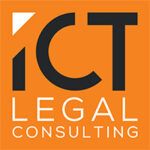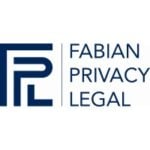-
What are your countries legal definitions of “artificial intelligence”?
-
Has your country developed a national strategy for artificial intelligence? If so, has there been any progress in its implementation? Are there plans for updates or revisions?
-
Has your country implemented rules or guidelines (including voluntary standards and ethical principles) on artificial intelligence? If so, please provide a brief overview of said rules or guidelines. If no rules on artificial intelligence are in force in your jurisdiction, please (i) provide a short overview of the existing laws that potentially could be applied to artificial intelligence and the use of artificial intelligence, (ii) briefly outline the main difficulties in interpreting such existing laws to suit the peculiarities of artificial intelligence, and (iii) summarize any draft laws, or legislative initiatives, on artificial intelligence.
-
Which rules apply to defective artificial intelligence systems, i.e. artificial intelligence systems that do not provide the safety that the public at large is entitled to expect?
-
Please describe any civil and criminal liability rules that may apply in case of damages caused by artificial intelligence systems. Have there been any court decisions or legislative developments clarifying liability frameworks applied to artificial intelligence?
-
Who is responsible for any harm caused by an AI system? And how is the liability allocated between the developer, the deployer, the user and the victim?
-
What burden of proof will have to be satisfied for the victim of the damage to obtain compensation?
-
Is the use of artificial intelligence insured and/or insurable in your jurisdiction?
-
Can artificial intelligence be named an inventor in a patent application filed in your jurisdiction?
-
Do images generated by and/or with artificial intelligence benefit from copyright protection in your jurisdiction? If so, who is the authorship attributed to?
-
What are the main issues to consider when using artificial intelligence systems in the workplace? Have any new regulations been introduced regarding AI-driven hiring, performance assessment, or employee monitoring?
-
What privacy issues arise from the development (including training) and use of artificial intelligence?
-
How is data scraping regulated in your jurisdiction from an IP, privacy and competition point of view? Are there any recent precedents addressing the legality of data scraping for AI training?
-
To what extent is the prohibition of data scraping in the terms of use of a website enforceable?
-
Have the privacy authorities of your jurisdiction issued guidelines on artificial intelligence?
-
Have the privacy authorities of your jurisdiction discussed cases involving artificial intelligence? If yes, what are the key takeaways from these cases?
-
Have your national courts already managed cases involving artificial intelligence? If yes, what are the key takeaways from these cases?
-
Does your country have a regulator or authority responsible for supervising the use and development of artificial intelligence?
-
How would you define the use of artificial intelligence by businesses in your jurisdiction? Is it widespread or limited? Which sectors have seen the most rapid adoption of AI technologies?
-
Is artificial intelligence being used in the legal sector, by lawyers and/or in-house counsels? If so, how? Are AI-driven legal tools widely adopted, and what are the main regulatory concerns surrounding them?
-
What are the 5 key challenges and the 5 key opportunities raised by artificial intelligence for lawyers in your jurisdiction?
-
Where do you see the most significant legal developments in artificial intelligence in your jurisdiction in the next 12 months? Are there any ongoing initiatives that could reshape AI governance?
Finland: Artificial Intelligence
This country-specific Q&A provides an overview of Artificial Intelligence laws and regulations applicable in Finland.

























